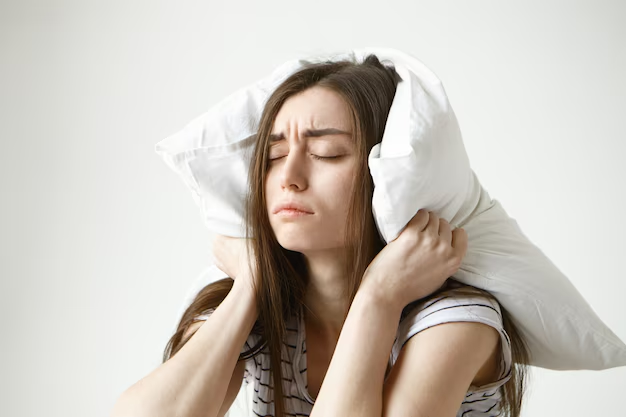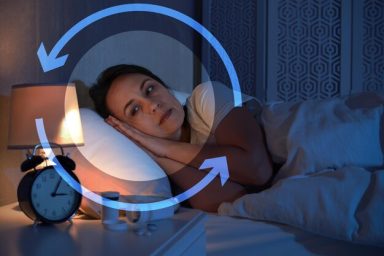- Home
- About Us
- Services
- Treatments
- Acid Reflux
- Allergic Rhinitis
- Alcoholic Fatty Liver
- Ankylosing Spondylitis
- Anxiety / Stress
- Arthritis
- Asthma
- Cervical Spondylitis
- Celiac Infection
- Colitis
- Constipation
- Dermatitis
- Detox Programme
- Diabetes (Madhumeha)
- Hair Fall
- Headache
- Hormonal Imbalance
- Hypertension
- Insomnia
- Irritable Bowel Syndrome
- Lungs Disease
- Migraine
- Neurological Disorder
- Non Alcoholic Fatty Liver
- Obesity Management
- Pain Management
- PCOD
- PCOS
- Sciatica Pain
- Sinusitis
- Skin Disorder
- Slip Disc
- Stress Management
- Thyroid
- Weight Management
- Techno-Ayurveda
- Media
- Blog
- Contact Us

Insomnia
Overcoming Insomnia
Overcoming insomnia can be challenging, but there are several strategies and lifestyle changes that can help improve sleep quality. Here are some effective methods:
1. Establish a Consistent Sleep Schedule
- Go to bed and wake up at the same time every day, even on weekends. This helps regulate your body’s internal clock, making it easier to fall asleep and wake up naturally.
2. Create a Relaxing Bedtime Routine
- Wind down before bed by engaging in relaxing activities like reading, listening to calming music, or practicing relaxation techniques such as deep breathing or meditation.
- Avoid stimulating activities such as intense exercise or watching action-packed TV shows or movies close to bedtime.
3. Limit Screen Time
- Reduce exposure to screens (phones, computers, TVs) at least 30–60 minutes before bedtime. The blue light emitted by screens interferes with melatonin production, making it harder to fall asleep.
4. Optimize Your Sleep Environment
- Keep your bedroom dark, quiet, and cool. Consider using blackout curtains or a sleep mask if light is an issue, and earplugs or a white noise machine if noise disrupts your sleep.
- Invest in a comfortable mattress and pillows that support your preferred sleeping position.
5. Watch What You Eat and Drink
- Avoid large meals, caffeine, and alcohol close to bedtime. Caffeine and nicotine are stimulants that can keep you awake, while alcohol might help you fall asleep but disrupts deeper sleep cycles.
- Drink enough water throughout the day, but avoid drinking too much fluid right before bed to prevent waking up for bathroom trips.
6. Exercise Regularly
- Exercise during the day to promote better sleep at night, but avoid vigorous exercise close to bedtime, as it can increase adrenaline and make it harder to fall asleep.
7. Manage Stress and Anxiety
- Practice relaxation techniques such as progressive muscle relaxation, yoga, or mindfulness meditation to reduce stress.
- Keep a journal to write down any worries before bed, which may help clear your mind.
8. Limit Naps
- If you take naps, limit them to 20-30 minutes, preferably earlier in the day, to prevent them from interfering with your nighttime sleep.
9. Seek Professional Help if Needed
- If insomnia persists despite lifestyle changes, consider consulting a healthcare provider. They may recommend cognitive behavioral therapy for insomnia (CBT-I), a structured program that helps address thoughts and behaviors contributing to sleep issues.
- In some cases, medications or other therapies may be recommended, but these are usually considered after other approaches have been explored.
10. Use Sleep Aids Sparingly
- While occasional use of over-the-counter sleep aids might help you fall asleep, they should not be relied upon long-term. Chronic use can lead to dependency or disrupt your sleep cycles.
Insomnia is often a result of underlying factors such as stress, anxiety, or irregular sleep habits. By making adjustments to your routine, environment, and overall lifestyle, you can significantly improve the quality of your sleep over time.
Symptoms of Insomnia
1. Sleep Struggle
2. Interrupted Sleep
3. Early Awakening
4. Tired After Sleeping
5. Tiredness In the Day
6. Irritability, Depression, Anxiety
7. Task Concentration Issues
8. Worries About Sleep
Common Causes of Insomnia

Stress
Stress activates the body’s “fight or flight” response, increasing cortisol levels and making it difficult to relax. This heightened state of alertness disrupts the natural sleep cycle, preventing restful sleep and often leading to insomnia and difficulty falling asleep.

External Disturbance
External disturbances, such as loud noise, bright lights, or uncomfortable temperatures, can interfere with the body’s ability to relax and fall asleep. These factors disrupt the sleep environment, leading to difficulty in staying asleep and contributing to insomnia.

Genetic
Genetic factors can play a role in insomnia by influencing sleep patterns and predisposition to sleep disorders. Individuals with a family history of insomnia or other sleep conditions may be more likely to experience difficulties falling or staying asleep.

Change in Sleep Pattern
A change in sleep patterns, such as irregular sleep schedules, shift work, or jet lag, disrupts the body’s natural circadian rhythm. This misalignment can interfere with the ability to fall asleep and stay asleep, leading to insomnia and poor sleep quality.

Lifestyle Choices to Medical Conditions
External disturbances, such as poor lifestyle choices (e.g., excessive screen time or irregular routines) and medical conditions (e.g., chronic pain, sleep apnea, or anxiety), can negatively impact sleep quality. These factors disrupt the body’s natural rhythm, leading to discomfort and sleep issues.
FAQs of Insomnia
Insomnia is a sleep disorder characterized by difficulty falling asleep, staying asleep, or waking up too early and not being able to get back to sleep. This can lead to daytime fatigue, irritability, and difficulty concentrating.
Insomnia can be caused by various factors, including stress, anxiety, depression, poor sleep hygiene, certain medications, medical conditions like pain or sleep apnea, and lifestyle choices such as excessive screen time or irregular sleep schedules.
Improving sleep hygiene, such as establishing a consistent sleep schedule, avoiding caffeine and electronics before bed, and creating a relaxing bedtime routine, can help improve sleep. Relaxation techniques, like meditation or deep breathing, may also help.
